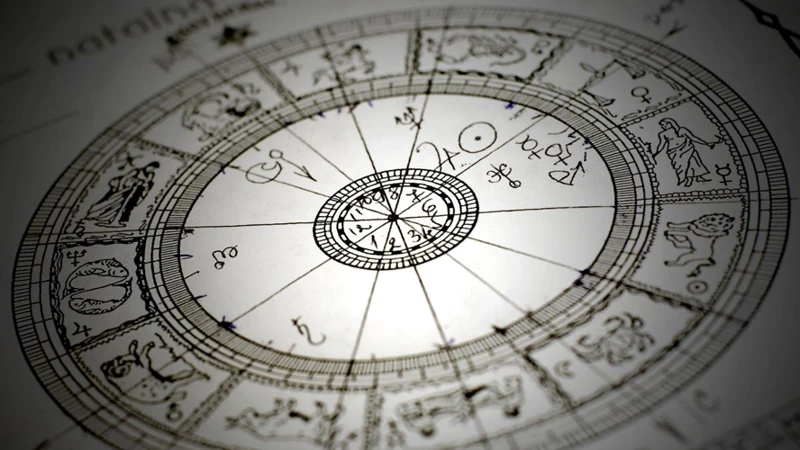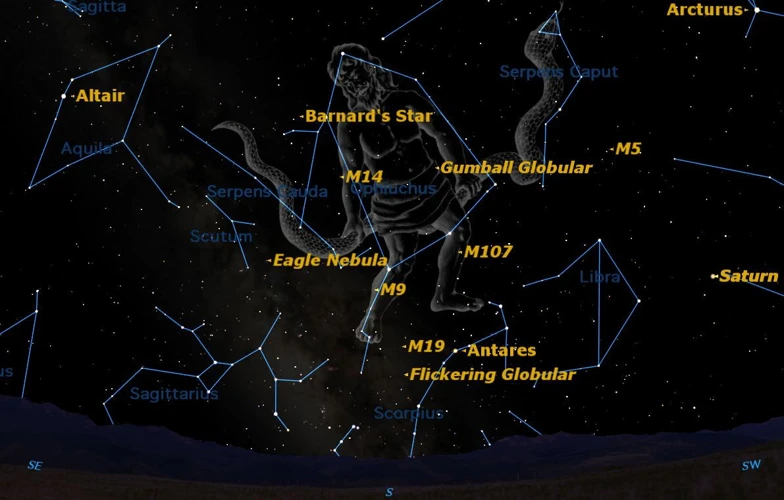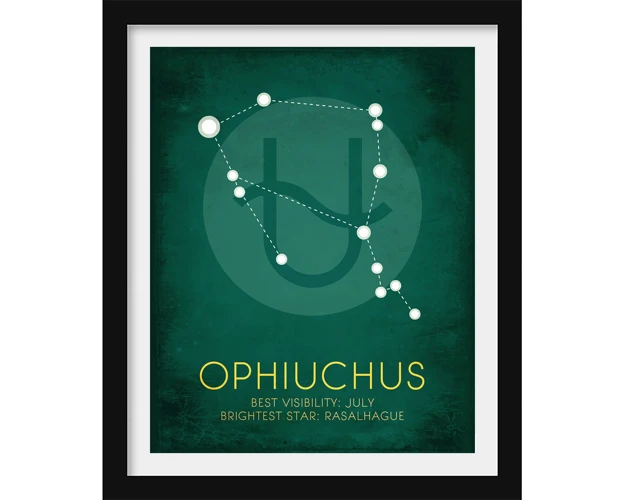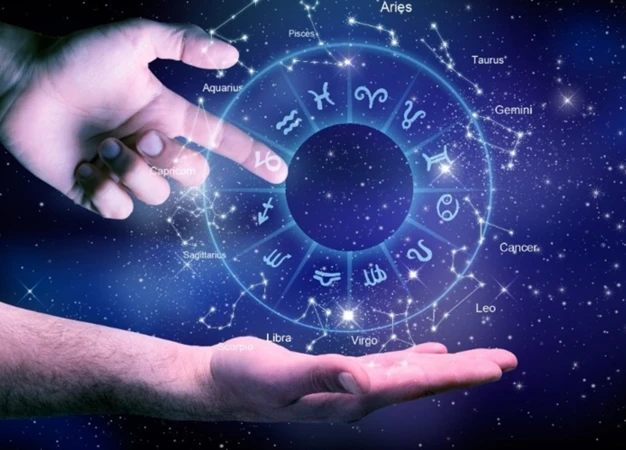Have you ever wondered how the position of the stars at the time of your birth could influence your personality and future? The study of zodiac signs has been a subject of fascination for centuries, blending the realms of science and mysticism. In this article, we will delve into the scientific foundation of zodiac signs, exploring their origin, the connection between astrology and personality traits, the role of astronomy in understanding the zodiac, and scientific studies that have been conducted in this field. Join us on this journey as we unravel the mysteries and complexities surrounding the zodiac signs.
The Origin of Zodiac Signs

The study of zodiac signs can be traced back to ancient civilizations that observed the celestial bodies and their correlation with human behavior. Early civilizations, such as the Babylonians and the Egyptians, developed early forms of astronomy and astrology. Early Astronomy and Astrology were intertwined, as they believed that the positions of the stars and planets had an impact on human destinies.
Over time, the development of zodiac systems took place in various cultures around the world. The Greek astronomer Ptolemy is credited with establishing the 12 signs of the zodiac that we recognize today. Each sign corresponds to a specific period of the year and is associated with different personality traits and characteristics.
To understand the foundation of zodiac signs, it is essential to explore the relationship between astronomy and astrology. While astrology is often seen as a pseudoscience, it is rooted in the intricacies of celestial mechanics and the interconnectedness of the universe.
Now that we have an overview of the origin of zodiac signs, let us delve deeper into the relationship between astrology and personality traits.
1.1 Early Astronomy and Astrology
The roots of astronomy and astrology can be traced back to ancient civilizations that existed thousands of years ago. The early practitioners of these disciplines observed the movement of the celestial bodies and sought to find patterns and connections between them and human life. They believed that the positioning of the stars and planets at the time of a person’s birth could influence their personality, behavior, and even their destiny.
Astronomy and astrology were closely intertwined during this period. Astrologers played a significant role in predicting the fate of individuals based on the positions of celestial bodies, such as the Sun, Moon, and planets. They developed complex systems and mathematical calculations to study the movements and alignments of these celestial bodies.
Early astronomers and astrologers in different ancient civilizations, including the Babylonians, Egyptians, and Greeks, contributed to the development of this field. They observed the sky meticulously and recorded their findings, laying the groundwork for future generations to expand upon their knowledge.
To learn more about the history and beliefs of ancient astrology and how it connects to modern science, you can read our article on the history of astrology: ancient beliefs to modern science.
1.2 Development of Zodiac Systems
Development of Zodiac Systems
The development of zodiac systems is a fascinating aspect of human history, as it reflects our ongoing quest to understand and interpret the celestial realm. Throughout different cultures and civilizations, various zodiac systems were formulated.
In ancient Mesopotamia, the Babylonians played a significant role in the development of zodiac signs. They divided the sky into twelve equal parts, each associated with a specific constellation, creating the foundation for the zodiac signs we know today. The Babylonians believed that the movements of the stars and planets held significance in predicting events and understanding human destinies.
One of the most well-known zodiac systems can be attributed to the ancient Greeks. They expanded upon the Babylonian zodiac by incorporating their mythological figures into the signs. For example, the sign of Aries represents the golden ram from Greek mythology, while Taurus is associated with the legendary bull.
Over time, other cultures such as the Egyptians, Persians, and Chinese developed their own zodiac systems, each with their own unique characteristics and interpretations. While the exact details of these systems vary, the underlying principle of dividing the year into twelve parts and assigning personality traits to each sign remains consistent.
It is important to note that the development of zodiac systems was not exclusively based on scientific observations but also influenced by cultural beliefs and mythologies. However, the continuous use and widespread acceptance of these systems throughout history indicate their enduring influence on human society.
As we continue to explore the scientific foundation of zodiac signs, it becomes evident that the development of these systems is a testament to humanity’s fascination with the stars and their desire to find meaning in the cosmos.
To gain a deeper understanding of the scientific studies conducted on zodiac signs, we will discuss this further in the next section.
Astrology and Personality Traits

Astrology has long been associated with the belief that the position of the stars and planets at the time of our birth can offer insights into our personalities and traits. Each of the zodiac signs is believed to possess specific characteristics and tendencies that can influence our behavior and life paths. Key Traits Associated with Zodiac Signs vary from sign to sign, with some signs being known for their assertiveness and leadership skills, while others are associated with creativity and sensitivity.
Astrologers often create astrological birth charts based on an individual’s date, time, and location of birth. These charts provide a detailed analysis of an individual’s zodiac sign, the placements of various planets, and how these factors may shape their personality traits and life events. While skeptics may question the legitimacy of astrology, many people find comfort and guidance in understanding their zodiac sign and the potential insights it can provide.
While astrology has been widely embraced by millions of individuals worldwide, it is essential to approach it with a critical mindset. Scientific studies examining the connection between astrology and personality traits have yielded mixed results, with some research suggesting a correlation and others finding no significant evidence. To explore the scientific perspective on astrology, continue reading about the scientific studies on zodiac signs.
Next, we will uncover the role of astronomy in understanding the zodiac and its influence on our lives.
2.1 Key Traits Associated with Zodiac Signs
When exploring the key traits associated with zodiac signs, it is important to note that each sign is believed to have its own distinct set of characteristics. These traits are said to influence an individual’s personality, behavior, and even their compatibility with others. Let’s delve into some of the key traits commonly associated with each zodiac sign:
- Aries: Known for their assertiveness, confidence, and natural leadership qualities, Aries individuals are often described as courageous and adventurous.
- Taurus: Taureans are known for their grounded nature and practicality. They are often described as reliable, patient, and having an appreciation for the finer things in life.
- Gemini: Gemini individuals are known for their versatility and intellectual curiosity. They possess excellent communication skills, adaptability, and have a playful and witty nature.
- Cancer: Cancers are known for their emotional depth and nurturing qualities. They are often described as compassionate, intuitive, and fiercely protective of their loved ones.
- Leo: Leos are known for their confidence, charisma, and natural ability to command attention. They are often described as generous, warm-hearted, and passionate.
- Virgo: Virgos are known for their attention to detail, analytical mindset, and practicality. They possess a strong work ethic, are reliable, and have a keen eye for perfection.
- Libra: Librans are known for their diplomatic nature and desire for harmony. They possess a natural sense of fairness, strong social skills, and have a love for aesthetics.
- Scorpio: Scorpios are known for their intensity and magnetic personality. They possess deep emotional depth, strong determination, and are often seen as mysterious and passionate.
- Sagittarius: Sagittarians are known for their adventurous spirit and love for freedom. They possess a positive outlook on life, a philosophical nature, and a desire for exploration.
- Capricorn: Capricorns are known for their ambitious nature and strong sense of responsibility. They possess excellent self-discipline, patience, and are often seen as reliable and resourceful.
- Aquarius: Aquarians are known for their progressive thinking and humanitarian nature. They possess a strong sense of individuality, intellectualism, and a desire for social justice.
- Pisces: Pisceans are known for their creative and compassionate nature. They are often described as empathetic, intuitive, and possess a deep connection to their emotions and spirituality.
It is important to remember that while these traits are commonly associated with each zodiac sign, individuals may exhibit a unique combination of traits influenced by various factors such as their upbringing, life experiences, and personal choices. Understanding these key traits can provide insights into one’s personality, relationships, and potential areas for personal growth.
Now let’s explore the concept of astrological birth charts, which delve deeper into the specific influence of zodiac signs on an individual’s life.
2.2 Astrological Birth Charts
Astrological birth charts, also known as natal charts or horoscopes, play a significant role in astrology. These charts are calculated based on an individual’s date, time, and place of birth. They provide a detailed snapshot of the positions of the planets and other celestial bodies at the time of the person’s birth, which astrologers believe can offer insights into their personality, strengths, weaknesses, and life events.
There are several key components that make up an astrological birth chart:
- Sun Sign: The sun sign represents the zodiac sign that the sun was in at the time of birth. It is the basis for many popular horoscopes and provides general personality traits.
- Moon Sign: The moon sign represents the zodiac sign that the moon was in at the time of birth. It influences emotions, instincts, and reactions.
- Rising Sign: The rising sign, also known as the ascendant, represents the zodiac sign that was rising on the eastern horizon at the time of birth. It influences the individual’s outward behavior and appearance.
- Planetary Placements: The positions of all the planets in the birth chart indicate their influence on different aspects of the individual’s life, such as relationships, career, and personal development.
- Aspects: Aspects refer to the angles formed between the planets in the birth chart. They provide insights into the dynamic relationships between different energies and can indicate strengths, challenges, and potential opportunities.
Astrologers analyze and interpret these various elements of the birth chart to provide personalized insights and predictions for individuals. It is important to note that interpretations may vary among astrologers, and multiple factors are considered to create a comprehensive analysis.
Now that we understand the significance of astrological birth charts, let us explore the role of astronomy in further understanding the zodiac signs.
The Role of Astronomy

When it comes to understanding the scientific foundation of zodiac signs, the role of astronomy is of paramount importance. Astronomy is the branch of science that deals with the study of celestial objects, their motions, and the physical processes that occur in space. By studying the movement and positions of the planets and stars, astronomers can determine the zodiac sign associated with a person’s birth.
Celestial mechanics play a crucial role in connecting astrology with astronomy. Celestial mechanics is the branch of astronomy that focuses on the mathematically precise description of the motion of celestial bodies. It provides a framework for understanding how the positions of the planets and stars are determined and how they influence the interpretation of zodiac signs.
In addition to celestial mechanics, another important concept to consider is the precession of the equinoxes. This phenomenon occurs due to the Earth’s slight wobble on its axis, causing a gradual shift in the orientation of its rotational axis. As a result, the position of the equinoxes relative to the stars changes over time. This precession has led to a discrepancy between the zodiac signs and the actual constellations they are named after.
By understanding the intricacies of astronomy and its connection to astrology, we can gain a deeper appreciation for the scientific underpinnings of zodiac signs. Next, we will explore the scientific studies conducted on zodiac signs to further our understanding.
3.1 Celestial Mechanics and Zodiac Signs
The study of celestial mechanics plays a crucial role in understanding the relationship between zodiac signs and the celestial bodies. It investigates the movement and interactions of celestial objects, such as stars, planets, and asteroids, and how they impact the Earth. These celestial mechanics form the basis for the interpretation of zodiac signs in astrology.
One of the fundamental principles in celestial mechanics is the concept of planetary motion. As the Earth orbits the Sun, the other planets also follow their respective orbits. The positions of these planets at the time of a person’s birth are believed to have astrological significance.
The Zodiac circle, which is divided into 12 equal segments representing the 12 zodiac signs, is a way to map the path of the Sun in the sky throughout the year. Each zodiac sign corresponds to a specific period when the Sun appears in that particular region of the sky. This alignment is what determines a person’s zodiac sign based on their birth date.
In addition to the Sun, the Moon and other planets also play a role in celestial mechanics and astrology. Their positions at the time of birth are considered in astrological readings to provide a more comprehensive understanding of an individual’s personality and life path.
This intricate study of celestial mechanics bridges the gap between scientific observations and astrology, allowing practitioners to interpret the influence of celestial bodies on human experiences and characteristics. It is important to note that while celestial mechanics provides a foundation for the interpretation of zodiac signs, it is a complex field that requires expertise to accurately analyze and translate into astrological readings.
3.2 The Precession of the Equinoxes
The concept of the precession of the equinoxes is a fundamental aspect of understanding the zodiac signs and their relationship to the movement of celestial bodies. The precession of the equinoxes refers to the gradual shift in the orientation of the Earth’s axis of rotation over a period of approximately 26,000 years. This phenomenon is caused by the gravitational forces exerted by the moon and the sun on the Earth’s equatorial bulge.
As a result of the precession, the position of the vernal equinox, which is the point where the sun crosses the celestial equator, shifts slightly each year. This shift has significant implications for astrology and the interpretation of zodiac signs. For instance, the twelve signs of the zodiac are based on the constellations that were visible on the vernal equinox thousands of years ago.
However, due to the precession, the alignment between the zodiac signs and the constellations has changed over time. This means that the zodiac sign associated with a person’s birth may not correspond directly to the constellation that would have been seen at that time. This is an important factor to consider when analyzing astrological birth charts and making interpretations based on zodiac signs.
Understanding the precession of the equinoxes is crucial for reconciling astrology with scientific knowledge. While the zodiac signs are based on ancient observations, modern astronomy recognizes that the constellations have shifted over time. It is essential to acknowledge this scientific reality while appreciating the historical significance and symbolic meanings associated with zodiac signs.
Scientific Studies on Zodiac Signs

Scientific studies have been conducted to explore the validity of zodiac signs and their relationship to personality traits. Personality Trait Research has focused on examining whether there is a correlation between an individual’s zodiac sign and their unique characteristics. While some studies have suggested that there may be certain patterns and tendencies associated with specific signs, the results have been mixed.
Statistical analysis has been employed to examine the traits of individuals across different signs and compare them to random chance. Statistical Analysis of Zodiac Traits has revealed inconsistent findings, with some studies finding significant correlations while others have found no statistical significance. It is worth noting that these studies often face challenges in terms of sample size, methodology, and the subjective nature of personality assessment.
While the scientific community remains divided on the subject, it is important to recognize that astrology and the zodiac play a significant role in the lives of many individuals. The belief in zodiac signs and their influence on personality and destiny has endured throughout history, attracting both passionate adherents and skeptical critics. Regardless of one’s stance, exploring the scientific foundation of zodiac signs provides valuable insight into the fascinating intersection of science, belief systems, and human nature.
To deepen your understanding of the scientific exploration of astrology, you can read more about astrology scientific studies.
4.1 Personality Trait Research
Personality trait research plays a crucial role in understanding the scientific foundation of zodiac signs. Numerous studies have been conducted to explore the potential connections between astrology and personality traits. Researchers have sought to investigate whether individuals born under the same zodiac sign possess similar characteristics and tendencies.
One approach in personality trait research involves examining the psychological profiles of individuals based on their zodiac signs. Researchers analyze data from large populations to identify commonalities and differences among people born under different signs. These studies typically involve administering personality tests or questionnaires to participants and then correlating their responses with their zodiac signs.
Interestingly, some studies have found certain patterns and similarities in personality traits among individuals with the same zodiac sign. For example, individuals born under the sign of Leo are often described as confident, assertive, and charismatic, which aligns with the characteristics associated with this sign in astrology.
However, it is important to note that these findings are not without controversy. Critics argue that the correlations found in such studies may be mere coincidences or influenced by other factors. The scientific community remains divided on the validity and reliability of personality trait research in relation to zodiac signs.
Despite the debates and skeptics, personality trait research continues to be conducted, shedding light on the complex relationship between astrology and human behavior. Further exploration is needed to determine the extent to which zodiac signs truly influence personality traits, and whether other factors play a more significant role.
4.2 Statistical Analysis of Zodiac Traits
When it comes to exploring the scientific foundation of zodiac signs, conducting statistical analysis plays a crucial role. Researchers have sought to examine whether there are any correlations between zodiac traits and real-world personality traits. By collecting data on individuals’ zodiac signs and personality characteristics, these studies aim to uncover if there are any patterns or trends that can be attributed to specific signs.
One approach in statistical analysis is to compare the personality traits of individuals born under different zodiac signs. Through surveys, questionnaires, and psychological assessments, researchers gather information on various aspects of personality, such as extroversion, agreeableness, openness to experience, and neuroticism. Using statistical methods, they analyze the data to determine if there are significant differences or similarities between individuals of different zodiac signs.
Additionally, researchers examine large datasets to identify any potential relationships between zodiac signs and specific personality traits. By studying the data of thousands or even millions of individuals, statistical techniques, such as regression analysis and correlation tests, can reveal whether certain traits are more prevalent among individuals of certain zodiac signs.
It’s important to note that statistical analysis of zodiac traits is not without its criticisms. Skeptics argue that the results from these studies may be influenced by various factors, such as self-reporting bias, cultural influences, and the Barnum effect. Nevertheless, statistical analysis provides a quantitative lens through which zodiac traits can be examined and evaluated.
As scientific research continues to unfold, statistical analysis remains a valuable tool in understanding the potential connections between zodiac signs and personality traits. By combining the realms of astrology and scientific inquiry, researchers aim to shed light on this complex and mystifying topic.
Understanding Astrology and Science
To truly grasp the nature of astrology and its connection with science, it is crucial to understand the relationship between the two. While astrology is often regarded as a mystical practice, there is a scientific basis underlying its principles.
Astrology, at its core, is an observation of the celestial bodies and their influence on human life. It draws on the concept that there is a correlation between the positions of the planets and stars at the time of birth and the personality traits and life events of individuals.
Although astrology is not considered a natural science, it does encompass elements of astronomy, which is a legitimate scientific discipline. Astronomy focuses on the study of celestial objects and their movements, while astrology interprets these movements in relation to human experiences.
One aspect that bridges the gap between astrology and science is the concept of electromagnetic radiation. Celestial bodies emit different types of electromagnetic radiation, and this radiation can have an impact on various aspects of life on Earth. While scientists primarily focus on the physical effects of this radiation, astrologers interpret its influence on personality and behavior.
Another area of intersection between astrology and science is the study of psychology. Many astrologers believe that personality traits and behavioral patterns can be influenced by the positions of the planets and stars at the time of birth. This notion aligns with the principles of psychology, which explores the connection between behavior, personality, and external factors.
It is important to note that astrology is not without its skeptics within the scientific community. Skeptics argue that the correlation between celestial bodies and human traits is more coincidental than causational. However, despite differing opinions, astrology continues to captivate individuals seeking self-discovery and insight into their lives.
| Astrology | Science |
| Observation of celestial bodies | Study of celestial objects and their movements |
| Interpretation of celestial movements in relation to human experiences | Focus on physical effects of electromagnetic radiation |
| Belief in the influence of celestial bodies on personality and behavior | Exploration of the connection between behavior, personality, and external factors |
While there is ongoing debate regarding the scientific validity of astrology, it remains an intriguing field that continues to captivate people’s interest and curiosity.
Continue reading to gain insights into the scientific studies conducted on zodiac signs to shed light on their possible validity here.
Conclusion
In conclusion, while the study of zodiac signs has a long history and continues to intrigue many people, it is important to approach astrology with a critical and open-minded perspective. The origin of zodiac signs can be traced back to early astronomy and astrology, where the positions of the stars and planets were believed to influence human destinies.
Throughout the centuries, zodiac systems have evolved and developed, becoming a significant aspect of many cultural and religious beliefs. Astrology often associates specific personality traits with each zodiac sign, providing individuals with insight into their strengths, weaknesses, and behavioral patterns.
However, it is crucial to note that the scientific community does not recognize astrology as a valid science. Many studies conducted on astrology and personality traits have produced inconsistent and inconclusive results. Scientific analysis of zodiac signs has not provided substantial evidence to support the claims made by astrologers.
It is essential to distinguish between astrology as a form of entertainment and personal reflection versus astrology as a predictive tool or a basis for making life decisions. While astrology can be fun and insightful, it should not be relied upon as a source of absolute truth.
In summary, the scientific foundation of zodiac signs remains a topic of debate and skepticism. While astrology has its place in cultural and personal contexts, it is crucial to approach it with a critical mindset, considering it as a form of entertainment rather than a scientific truth.
Frequently Asked Questions
1. How are zodiac signs determined?
Zodiac signs are determined by the position of the Sun in relation to the Earth at the time of an individual’s birth. The Sun appears to move through the 12 constellations of the zodiac over the course of a year, and each sign is associated with a specific date range.
2. Can zodiac signs accurately predict personality traits?
While zodiac signs are often believed to provide insights into personality traits, it is important to note that individual personalities are complex and influenced by various factors. Zodiac signs can offer general characteristics, but they do not guarantee accurate predictions of an individual’s personality.
3. Can someone exhibit traits from multiple zodiac signs?
Yes, it is possible for individuals to exhibit traits from multiple zodiac signs. Various astrologers take into consideration the position of other planets at the time of birth, which can influence personality traits and tendencies beyond the Sun sign.
4. Are zodiac signs the same across cultures?
Although certain zodiac signs like Aries, Taurus, and others have consistent dates across cultures, the interpretation and significance of these signs may vary in different astrological systems. Some cultures also have their unique zodiac systems altogether.
5. Is there scientific evidence to support astrology?
While astrology is not considered a scientifically proven field, numerous studies have explored the connection between astrology and personality traits. However, it is important to approach astrology with critical thinking and understand the limitations of scientific research in this area.
6. Can zodiac signs determine compatibility in relationships?
Many believe that zodiac signs can offer insights into relationship compatibility. However, it is essential to remember that individual personalities and relationship dynamics are multifaceted. Compatibility should be assessed holistically, taking into account various factors beyond just sun signs.
7. Can zodiac signs predict future events?
Zodiac signs are not intended to predict specific events in a person’s life. Astrology focuses more on providing general insights into personality traits, tendencies, and possible influences rather than predicting specific future events.
8. How has astrology evolved over time?
Astrology has evolved significantly over time as civilizations and cultures have developed their own interpretations and practices. Modern astrology incorporates psychological and humanistic perspectives, combining traditional astrological concepts with contemporary understandings.
9. Can astrology be considered a form of entertainment?
Astrology can be seen as a form of entertainment for many people, offering a source of curiosity and amusement. It can provide a fun way to explore personality traits and gain insights into oneself and others, but it should not be taken as definitive or absolute.
10. Can astrology help with self-reflection and personal growth?
For some individuals, astrology serves as a tool for self-reflection and personal growth. It can provide a framework for exploring and understanding one’s own strengths, weaknesses, and patterns of behavior, leading to greater self-awareness and personal development.








